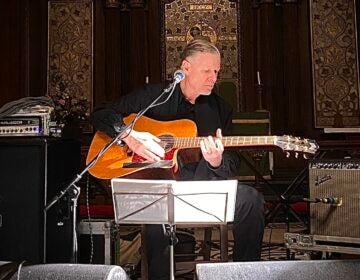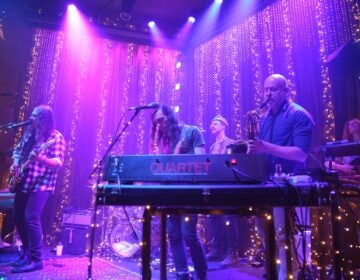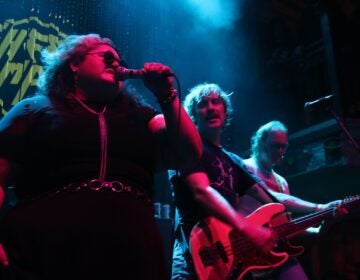Former ‘World Cafe’ host Talia Schlanger embraces emotional truth in her debut album, ‘Grace for the Going’
Talia Schlanger once interviewed performers for a living — Sting, Lizzo, Macy Gray and Willie Nelson among them. Now she’s on the other side of the microphone.
Listen 7:58
Talia Schlanger performing live. (Stephen Rea)
From Philly and the Pa. suburbs to South Jersey and Delaware, what would you like WHYY News to cover? Let us know!
A few years before the COVID-19 pandemic hit, Talia Schlanger hosted NPR’s Philadelphia-produced music program “World Cafe.” She grew up singing and acting in Canada, and after careful consideration, she left the show to return to her creative roots.
Her first album, “Grace for the Going,” reflects on a life lived with grace. WHYY “Morning Edition” host Jennifer Lynn spoke with Schlanger ahead of a performance at Johnny Brenda’s in Philadelphia.
Jennifer Lynn: In this album, “Grace for the Going,” your voice goes many places in tone and range and in the emotional part of the storytelling in each song. What are you reaching for vocally, song to song?
Talia Schlanger: I think just natural placement in the voice and emotional truth. I always choose emotional truth over the aesthetic of a sound. In ‘So Small’ there’s a big crescendo moment, and my voice breaks a little bit, and rather than do the shiny recording studio thing of cleaning that up, I was really adamant that we just let that be.
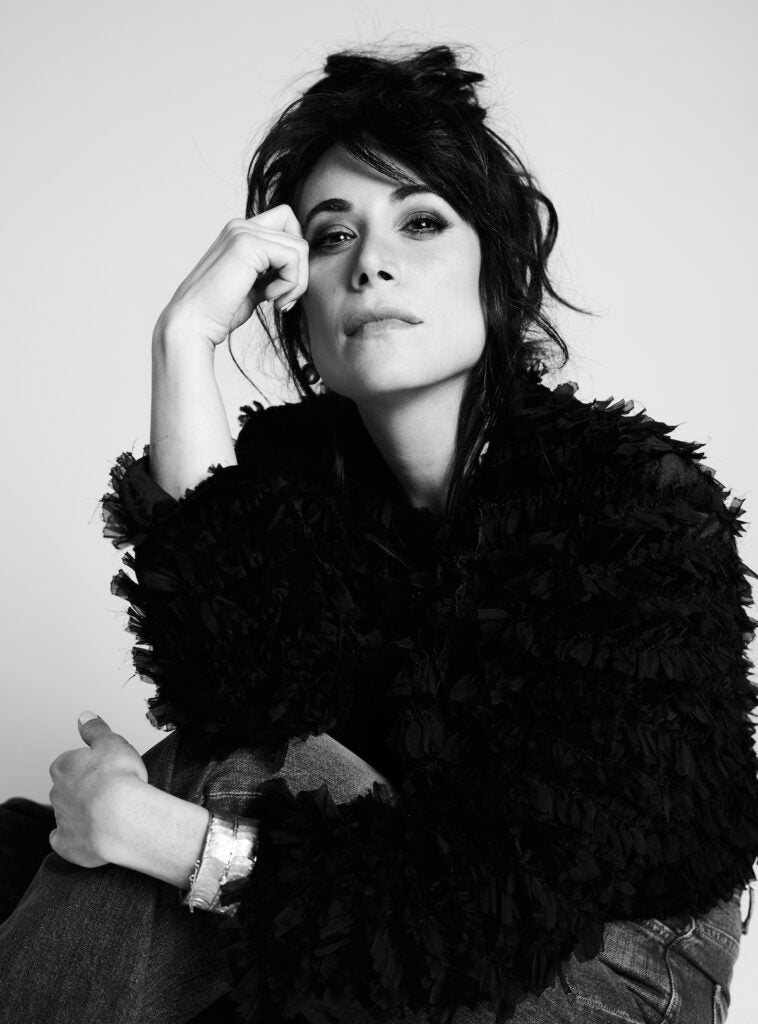
JL: Were any of these songs single-standing poems at first, and then they were put to music?
TS: “A Pool” was a bit that way; it came out all in one shot. I’m so much about the cadence and the way that words tumble out of your mouth when you sing them, and once I really like the rhythm of something I kind of can’t help but want to sing it or put it to music.
JL: There’s some great instrumentation on these songs: guitar picking, some swelling instruments. There’s an instrument called the Cristal Baschet.
TS: Cristal Baschet, yeah! It’s a French instrument which is sort of like if a piano were made out of ice crystals, and you play it by wetting your hands with water and then dragging them across the crystals to make these vibrations. It’s on the song “See You Home,” … the first song of the record.
JL: Oh, wow. Well, how does it fit in with “See You Home”?
TS: The song is actually a retelling of my Bubba’s story of crossing the Atlantic Ocean with her daughter. My bubba survived the Holocaust. She promised her daughter that if the waters rose and tried to overtake the boat that she would hold her really high over her head with her last breath and that she would be saved. The song comes from water.
JL: To me this collection of songs is a record of feelings. Is “Narrow Bridge” a story about mental health?
TS: Yeah.
JL: What happens in that song for you?
TS: I started to have panic attacks when I was starting out in radio. And I sort of got them under control for a long while. During COVID, they crept up again.
I was working on the record in a deep way at that time and the song’s in kind of a weird meter. I think of it as a busted-up waltz because a waltz is very comforting right: one, two, three, one, two, three. But this song is in 11/4. So it’s a waltz but it’s missing a beat. So it goes one, two, three, one, two, three, one, two, three, one, two, one, two, three.
And it was sort of meant to be a mirror of the brain loop of having a panic attack where you kind of can’t catch your breath, but there’s also this meditative quality to it, and I felt like if I put that into a song it would give me like a safe place to go, and it did help a lot.
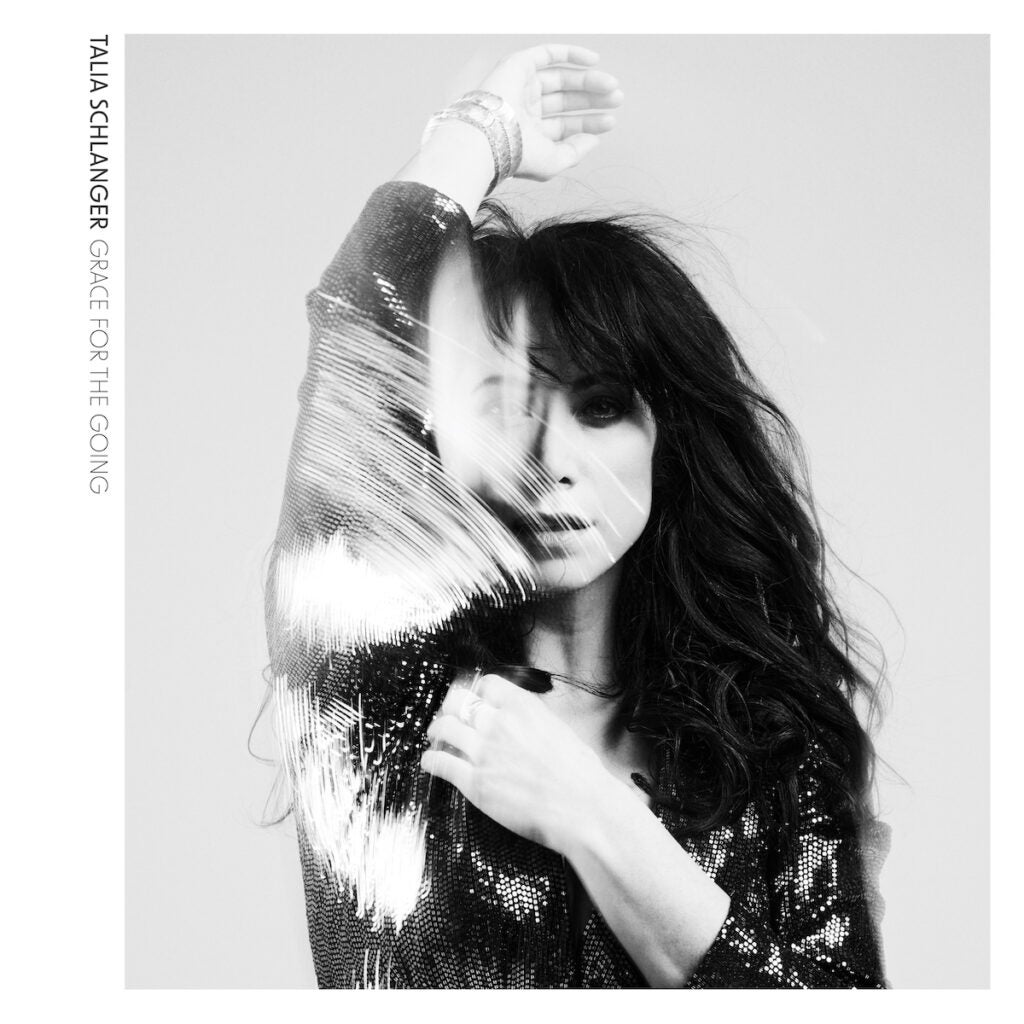
JL: It seems like a lot of performers have anxiety, panic attacks?
TS: It is very common, or maybe it’s just as common in performers as it is in the general population, but folks who are writing from the depths of their experience and choosing to share that seem more visible in that way.
Maybe if it’s that, maybe art is useful in helping a lawyer, or a teacher, or a doctor, or even to be like, “I feel that way too, I am not alone,” and I’m glad that I have a musical place that I can go to meet somebody else in that void.

Get daily updates from WHYY News!
WHYY is your source for fact-based, in-depth journalism and information. As a nonprofit organization, we rely on financial support from readers like you. Please give today.



